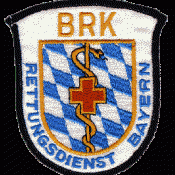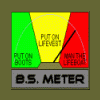Leaderboard
Popular Content
Showing content with the highest reputation on 05/31/2011 in all areas
-
All right. I've held off on posting in this thread because, as usual, this is gonna be a big one. I've said it before, and I'll say it again, guys. We are NOT that good at managing emergencies, and very little of what we do has been shown to actually make a difference in an emergency. So exactly WHY are we limiting ourselves to solely emergency care? Let me ask you all this, exactly what do you think we're going to do when our local governing bodies figure out that paramedics really aren't as vital as we like to think, but we're in a tight budget situation? Do you really think that they're going to keep paying for anything or anyone that hasn't proven themselves invaluable and non-expendable? The medical environment we find ourselves in is this: if you want us to pay up, you better show up with something more than emotional pleas about how important you are. And we in EMS are NOT prepared to respond to that kind of scrutiny. We absolutely HAVE to start showing more for our cost than an IV, O2, monitor and transport. Uh uh. That's not cutting it anymore. Every single person here needs to take a hard look in the mirror and ask themselves, "What am I doing that is changing this patient's outcome?" You may be surprised by the answer, and even if you're not if you're not thinking beyond emergencies you're already up the creek without a paddle. Transport to the ER isn't cutting it, so we have got to start doing more than providing little more than that. We have got to start adamantly advocating for higher educational standards, and more definitive (or perhaps conclusive is a better term) care options. We've got to start performing sound triage, treat-and-release, release-and-refer, and offering more than what we are right now. Emergency medical services is a flop. It's a failure, doomed from its inception. If you want to go down that path, if you want us to just take people to the hospital, you're going to soon find that that's all we're EVER going to be paid for. We can't do that anymore. It's time to step up, own our own education, put on our big boy pants, and start providing true mobile health services. That doesn't mean everybody needs to go to the ER, and that also means that we have got to take a hard look at what the socioeconomic environment of our communities is. A lot of you bring home up health nursing and how it's not our area and it shouldn't be because that field belongs to the home health nurses. You know what? Home health nurses exist, that's true, but how many patients with chronic care issues that need chronic care treatments do YOU run on a yearly basis? Quite a few, I'm guessing. So what does that say about the effectiveness and reach of home health nursing practitioners? It says that while they may be out there, and they may be doing their jobs just fine, there's still a gap that needs filling. And that gap is one that we as paramedics can fill if we will just get our heads out of our asses and put the rulers away for one second. I didn't become a paramedic to run emergency calls. And I didn't become a paramedic to only handle the worst of the worst. I became a paramedic because I wanted to make a difference in people's lives, and I wanted to provide vital, necessary medical care to folks. And you know what I found out? Just doing the emergency stuff, I'm not all that great at doing what I set out to. But you know what? I'm willing to learn, I'm willing to educate myself so that I CAN do more for those patients that don't need emergency care. I am sick to death of transporting so many patients that I can't do a damn thing for. They're sick enough to need medical care, but not sick enough to need anything in my drug box. And that's the majority of my patients. The majority of my patients, and I suspect the majority of your patients, need more than what we can offer them, but what they need isn't emergency care. I know this. You know this. And sooner or later, the politicians are going to realize this and start asking what the hell they're funding us for when we're undertrained and unwilling to handle these kinds of medical situations. Nurses aren't. Nurses are trained to handle these kinds of patients, AND they're willing to do so. And in the time it takes us just to revise our educational standards, nurses could have a system of RN-based mobile health services in place that turns a profit AND provides better medical care than we could ever provide. We're an odd bunch, we paramedics. We fight when we ought to listen, listen when we ought to fight. But I'm telling you, like I have so many times so far that I fear I'm becoming redundant, that if we don't adapt and overcome; if we don't change the way we operate from the ground up; if we don't give up these notions that increased education isn't going to make a difference to our wallets, and that "we're emergency medical services so we're only going to handle emergencies", we are going to fail. Not today, not tomorrow, probably not even five years down the line. But we will fail, and we will be replaced by people who are smart enough to know that medicine is fluid and to be in medicine you have to be fluid as well. Business as usual isn't cutting it anymore. So in conclusion, I support Wake County's APP program. I support the NHS' ECP program. Wake County isn't a college, they can't create a Bachelor's degree for APP's, but they're on the right track. They see what lies down the road and they're securing their own position in the future by looking beyond emergencies. I hope that we as a profession will advance our educational standards to meet the need we're seeing, and that in the future the paramedic practitioner will be a Bachelor's degree or higher. Until then, all I can do is take my hat of to those who are doing as much as they can to provide within their means and adapt to the changing medical environment.1 point
-
Not playing. A thumbnail picture, with no context? Forget it. In the real world, we DO make snap judgments about people- based on appearance, what they say, how they dress, what situation they are in, how we meet them, etc. So yes, we do unfairly characterize someone based on initial impressions, but we also have other information such as visual and auditory cues. Example- the picture of the biker, among hundreds of other bikes. Could be from a huge biker rally as in Sturgis, or it could be from a gay LeatherMan's convention. Context. Guys dressed up as hunters? Rednecks? Could be a well respected trauma surgeon I know who dresses exactly like that when he hunts. Based on your prior comments here, pardon me if I don't believe you do not have an ulterior motive with your "social experiment". State your point.1 point
-
Thank you all for the answers and opinions, please don't stop. It really helps me in my decision (I'm not sure yet, but there are a lot of things to consider). My collected replies to some of your all very valuable remarks: In our countie's EMS (non volunteer) nametags are allowed, but not mandatory, velcro is on the jacket. Since several years, name tags are not issued any more. Some colleagues use the old ones, some have bought private new ones, most don't wear any. Police here doesn't wear name tags either. Fire departments (all volunteer) usually do. I'm not exactly a public servant: especially in this case we're a volunteer first responder squad, not funded by public money. County EMS is a private organization contracted by the county, name tags or uniforms are not described in the contract. Even police officers don't wear name tags here (which is a big thing since a nearby police unit was involved in a case, where a lawsuit was dropped because the involved riot control officers can't be identified, maybe this may change things for police). We are able to be identified by call time and location. Central dispatch knows which unit when was where and then the EMS manager can consult the work time log to find out who was when on what unit. It doesn't identify the person, just the team, but in case of some inquiry that was never a problem to identify the indivudal EMT. I had numerous times patients or relatives refuse to let me do what I need to do. In most cases I can talk them into letting me do it anyway. Sometimes I just had to let them go (if they seem reasonable enough - if it get's worse, they would call again, anyway) and sometimes I had to get the police involved (if the patient is not conscious enough etc). But I can't see, what this has to do with my name. However, I have to admit, there was one case, a caller specifically requested me. Yes, I had numerous times patients or relatives want to see my credential. Mostly as a doctor - sorry, I'm just an "ambulance driver" (sarcasm intended). I had some asking me for my qualification and they were satisfied when told. I don't know how many medics have been killed by psycho patients, I go with the imagination of less than 1% as flamingemt states, thinking it is near 0. But I already have been heavily insulted by name and I was threated ("I find you, Mr. Bernhard, and then..."). Up to now those were just drunk people who most probably will regret their language later (special greetings to the australian girl from last Oktoberfest, her friend really wasn't dying from the cut toe, rather from the shame about her friend yelling into my ear). but in especially this case we were threated by a known violent guy living near my home. I don't want to die in an ambulance crash either, but then other things than my nametag might be the cause. Facebook.is an issue, yes. For a fact, some of the persons involved changed their screen name on facebook the same day. Some colleagues even have secret phone numbers, not trackable by the phone book. I'm not so paranoid, at least until this unhappy event, Our full names aren't on the patient care report, only on the work log in the station. Yes, it's astonishing, how a lot of people know you by name and you don't even know them by face. I greet everyone very friendly, therefore. But even after living almost 40 years in our local 10.000 soul coverage area there are a lot of strangers still. Until now, those who know me from private life don't tend to be violent against me (not counting the neighbour who crashed in my car recently, he may get a little angry about the repair bill I'll send him). No, I wouldn't go to a doctor who wouldn't let me know his name if I want to, simply because it would be difficult to find his office then. But in EMS I don't get called personally (rare exception see above). They call "EMS" in general. I don't think that's comparable with a decision to visit a specific doctor. If someone asks me for my name, it would depend on the situation: if he's aggressive and threatening he would only get the office number and the units call sign, which in combination with time/date is enough for a complaint about me. It's absolutely right, that if someone really wanted to know the name of someone who showed up on scene, that there are more than enough ways to find out. But this involves a somewhat intelligent search, which a "normal" violent drunkard who just happens to know my face and organization won't do. With a name it's very easy to search or ask. JPINV, your remark about hiding the name is a false sense of security is absolutely valid. I will consider this, but, what else could we do with the occasional aggressive patient/relative/bystander? At the moment we wear jackets with logo/branch on back plus logo on both shoulders and sweat-/poloshirts with our logo/branch on back and left chest. Name tag is worn on jacket only (velcro), a velcro patch on the jacket's chest states our qualification. On the sweat-/poloshirts we attach our ID card (clip), giving full name and qualification. Both, velcro name tag and ID clip could easily be removed if the individual provider decides so. But I look for a general rule to give to our volunteers. Again, thank you for your opinions (and don't stop), I can take those valuable views into a local meeting. Even if I know, that there seems to be no real solution...1 point
-
The only 'conclusion' I can foresee coming from this little 'social experiment' is to see how many will attach labels and how fast they can do it. At the end, I fully expect 'flaming' to show us the errors of our ways by revealing just how WRONG we really are for judging and labeling people based on nothing more than appearance. Once this has been done, I fully expect a scathing lecture on how we're so wrong about labeling the GLBT crowd based on appearances. There's a difference between advocacy and just looking for somthing to fight about, and it looks like this is just looking for trouble. He can tell me that there's no 'hidden agenda' till he's blue in the face, but I'm not buying it. A 'social experiment' like this only serves to bait the participants into a big knock down drag out fight because 'flaming' had to stir the pot one too many times... I fail to see how asking the participants to 'label' someone based on appearances only, will serve any productive purpose; and for that reason, I will refrain from playing. From where I sit, this smacks of nothing more than a game of "I Told You So" combined with an opportunity to throw words like 'prejudice, bigotry and discrimination (in all of its variations)' around.1 point
-
Unfortunately Ruff, I think you just made the case for the other two by disclosing your history. Imagine when you were THINKING of becoming a cop, and you went to "copcity.com" and asked for advice, and someone told you that if you are going to get into law enforcement, you have to have a masters in criminology, and you did that. Years later, and a few job transitions, it is obvious that some IT courses would have been better than those criminology courses. The criminology courses have absolutely no use to you in the IT field. And whoever said EMTB is the foundation of EMS ---- sorry, nowhere close. EMTB is a bandaid that was forced on our industry so Fire Departments could get in EMS at the lowest cost possible. It is an abomination to our industry. It would be like creating a course to become a Doctor that is one year in length, because there are not enough Doctors.1 point
-
I sat for a lecture about this from the guy running the program during the last JEMS conference. I don't remember every detail, but I remember him mentioning: -APPs do 100% followup on every refusal in their system. That means that APPs are calling these patients, and sometimes visiting, to make sure not only that they understood what the refusal meant, but also that they're doing OK and know how to get help if they need it. As I recall they also offer advice on how to streamline care (IE 911 isn't always the best option). -APPs have a slightly advanced scope of practice which I believe centers around cardiac arrest resuscitation. They respond to every code and do RSI, induced hypothermia, etc. They also serve as extra hands and I believe "run" the code to ensure optimum care. -Psychs. My impression was that they skip the ER and go to a facility or somehow streamline that process. All in all I remember thinking that it was an interesting take on EMS, but not something I would personally ever want to do. Although I do agree somewhat with the dogma that EMS must stick to "emergency" care, I think we would be mindful of the fact that it was partially through this kind of expansion of scope that got nurses to where they are today. I don't think anyone would disagree that EMS could very much benefit from a similar maturation...1 point
-
We went from Gay to Nazi, Wow... Gays do get discriminated. Elderly are discriminated against. Immigrants are discriminated against. Latinos are discriminated against. Trailer trash are discriminated against. Poor folks are discriminated against. Convicts are discriminated against. Asians are discriminated against. Bilingual are discriminated against. Rappers are discriminated against. Teachers are discriminated against. Welfare recipients are discriminated against. St Patty Day gets discriminated against. Alcoholics are discriminated against. Europeans are discriminated against. Heavy Metalists are discriminated against. Obese people are discriminated against. Anorexics are discriminated against. Hoarders are discriminated against. Whores are discriminated against. Popo are discriminated against. Muslims are discriminated against. Jews are discriminated against. Polygomists are discriminated against. Mormons are discriminated against. Penn Dutches are discriminated against. Medicaid holders are discriminated against. We all get some sort of discrimination... We all have felt it some way or another. Some a lot more than others but no one is exempted from discrimination.1 point





